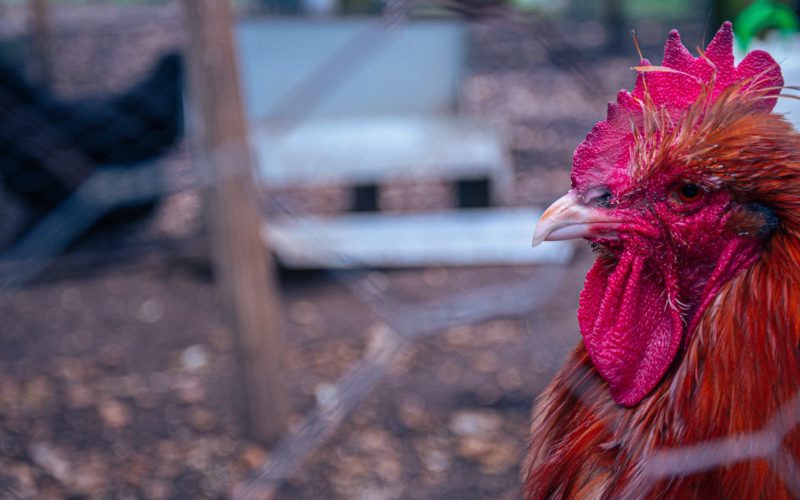Bird flu, also known as avian influenza, is a type of contagious disease caused by an infection with avian (bird) influenza A viruses. It’s a serious public health concern, and it can cause mild to severe illness in humans. In this blog post, we’ll take a look at the causes, symptoms and prevention of bird flu. We’ll also discuss what you can do to help protect yourself from this virus and what steps you should take if you think you may have been exposed to it. Read on to learn more about bird flu and how to keep yourself safe from its potential dangers.
What is bird flu?
Bird flu is a viral infection that can affect both wild and domestic birds. The most common type of bird flu is Influenza A, which can cause mild to severe illness in birds. Symptoms of bird flu include coughing, sneezing, ruffled feathers, and decreased appetite. In severe cases, bird flu can lead to death. Prevention of bird flu includes vaccinating chickens and other poultry against the virus, as well as maintaining cleanliness in poultry farms.
Causes of bird flu
The bird flu is a type of influenza that affects birds. The virus can cause a number of respiratory infections in birds, including the highly contagious and deadly H5N1 strain. The H5N1 strain is the most common cause of bird flu in humans and has resulted in several hundred deaths worldwide.
There are a number of different causes of bird flu, but the most common is contact with infected birds. The virus can be spread through direct contact with an infected bird, or through contact with their droppings. It can also be spread through the air, if an infected bird coughs or sneezes. In addition, contaminated food or water can also transmit the virus to birds.
Once a bird is infected with the virus, it can spread it to other birds through close contact. Infected birds may shed the virus in their saliva, feces and respiratory secretions, which can contaminate surfaces and clothing. In addition, wild birds can carry the virus long distances and infect other flocks of birds they come into contact with.
The best way to prevent bird flu is to avoid contact with sick or dead birds. If you must handle them, wear gloves and a face mask to protect yourself from exposure to the virus. In addition, cook poultry and eggs thoroughly before eating them to kill any potential viruses present.
Symptoms of bird flu
When it comes to bird flu, there are a few different symptoms that can present themselves in those who are infected. The most common symptom is fever, which can be accompanied by other respiratory symptoms like chills, body aches, runny nose, and sore throat. In more severe cases, bird flu can lead to pneumonia and even death. Because of this, it’s important to be aware of the symptoms and seek medical help if you think you may have been exposed to the virus.
Prevention of bird flu
As the name suggests, bird flu is a viral infection that affects birds. However, there are some strains of the virus that can infect humans as well. The most common type of bird flu is H5N1, which is deadly to both birds and humans.
The good news is that there are steps you can take to prevent bird flu. First, it’s important to avoid contact with sick birds or their feces. If you must handle sick birds, be sure to wear gloves and a mask.
Secondly, cook poultry and eggs thoroughly before eating them. You should also avoid touching your face or mouth after handling raw poultry or eggs.
Lastly, practice good hygiene habits such as washing your hands often and avoiding close contact with people who are sick. If you do come in contact with someone who has bird flu, be sure to monitor your health closely for any signs or symptoms of the virus.
Treatment of bird flu
There is currently no specific treatment for bird flu, and no vaccine is available for humans. Treatment focuses on relieving symptoms and supporting the respiratory system. Antiviral medications may be prescribed to help reduce the severity of the illness, but they are not effective in all cases.
If you have bird flu, it is important to get plenty of rest and drink lots of fluids to avoid dehydration. You should also avoid smoking and exposure to secondhand smoke, as this can irritate your lungs and make your condition worse. If you have a fever, pain or other symptoms that are making it difficult to sleep, over-the-counter medications may help.
In severe cases of bird flu, patients may require hospitalization to receive supportive care. This can include oxygen therapy and mechanical ventilation if necessary. Patients who develop pneumonia may also be treated with antibiotics, although these medications will not work against the virus itself. Ultimately, the goal of treatment is to keep the patient comfortable and breathing while the body fights off the infection.
When to see a doctor
If you experience any symptoms of bird flu, it is important to see a doctor as soon as possible. Early diagnosis and treatment is critical for the best possible outcome. Your doctor will likely order a variety of tests to confirm the diagnosis and rule out other potential causes of your symptoms. Treatment will focus on relieving symptoms and supporting your respiratory function. In severe cases, hospitalization may be necessary.
Conclusion
Bird flu is a serious health threat that affects humans and animals alike. It can cause severe illnesses and even death. Fortunately, there are steps you can take to help protect yourself from bird flu infection such as washing your hands often, avoiding contact with sick birds or live poultry markets, and cooking poultry thoroughly. By being informed about the causes of bird flu, its symptoms, and prevention methods we can keep ourselves safe from this potentially dangerous virus.












